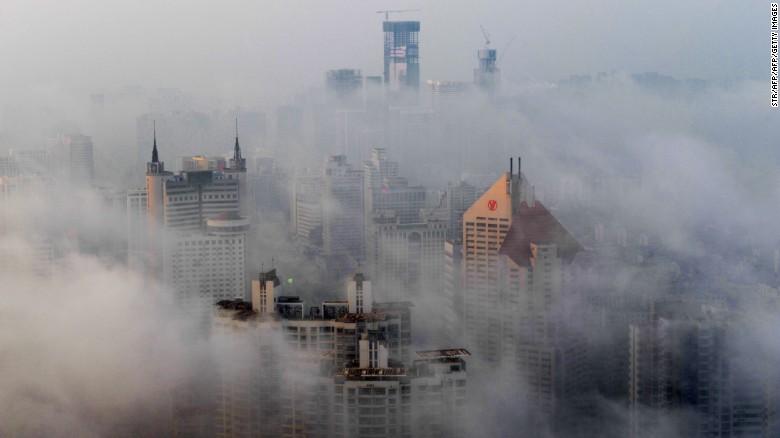
Chinese billionaire Wang Jianlin made his fortune in the country’s real estate market — and now he’s warning that it’s spiraling out of control.
It’s the “biggest bubble in history,” he told CNNMoney in an exclusive interview Wednesday.
Bubble is a sensitive word in China after the dramatic rise and spectacular crash in the country’s stock market last year, which wiped out the savings of millions of small investors who thought Beijing wouldn’t allow the market to drop.
After struggling to contain the fallout from the stock market debacle, China’s leaders could face a similar headache in the real estate sector.
The big problem, according to Wang, is that prices keep rising in major Chinese metropolises like Shanghai but are falling in thousands of smaller cities where huge numbers of properties lie empty.
“I don’t see a good solution to this problem,” he said. “The government has come up with all sorts of measures — limiting purchase or credit — but none have worked.”
It’s a serious worry in China, where the economy is slowing at the same time as high debt levels continue to increase rapidly. There are massive sums at stake in the real estate market: direct loans to the sector stood at roughly 24 trillion yuan ($3.6 trillion) at the end of June, according to Capital Economics.
“The problem is the economy hasn’t bottomed out,” Wang said. “If we remove leverage too fast, the economy may suffer further. So we’ll have to wait until the economy is back on the track of rebounding — that’s when we gradually reduce leverage and debts.”
He says, though, that he’s not worried about the prospect of a “hard landing” — a sudden and catastrophic collapse in economic growth.
Wang’s comments carry weight. He is the richest man in China, according to Forbes and Hurun Report data from 2015, and his real estate and entertainment empire brought in revenue of about $44 billion last year.
Wang has been warning of trouble in the Chinese property market for a while. His Dalian Wanda Group, which has developed huge malls and office complexes across China, has been gradually cutting back on its real estate business.
Instead, it’s pouring resources into entertainment, sports and tourism — areas where it sees potential for growth.
Wang has been on an overseas shopping spree lately, with a particular focus on the U.S. movie industry. And he’s on the hunt for more juicy targets.
In January, he bought the Hollywood studio Legendary Entertainment, which made blockbuster movies like “Jurassic World” and “Godzilla.” Less than two months later, his movie theater business AMC snapped up Carmike Cinemas, forming the biggest cinema chain in the world. And Wanda’s in talks to buy Dick Clark Productions, which produces shows like the American Music Awards and the Golden Globe awards.
But the major prize he’s seeking is control of one of Hollywood’s “Big Six” movie studios: 20th Century Fox, Columbia, Paramount, Universal Pictures, Warner Brothers and Walt Disney.
“We are waiting for the opportunity,” he said. “It could come in a year or two, or longer, but we have patience.”
His relations with Disney (DIS) came into the spotlight in May when he said the U.S. company”really shouldn’t have come to China” with its giant new Shanghai resort. Wanda is also investing heavily in theme parks in the country.
Wang said Wednesday that his beef with the House of Mouse was “not personal.”
“When it comes to movies, Disney is our biggest partner,” he said. “But when it comes to entertainment tourism, we are archrivals. So of course we want to smash them.”
As reported by CNN
